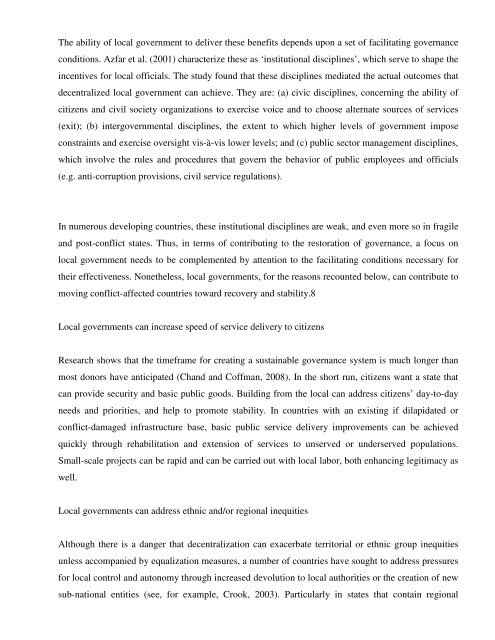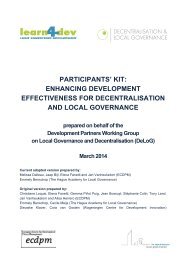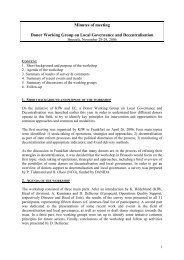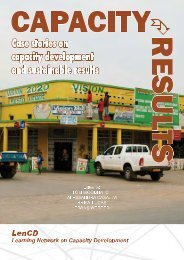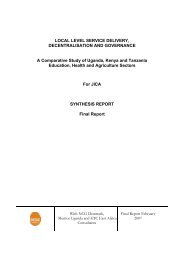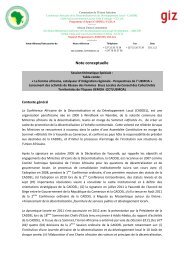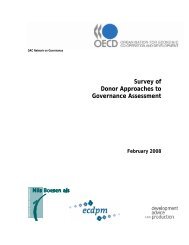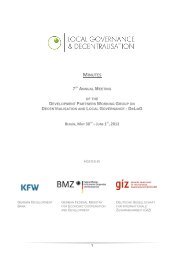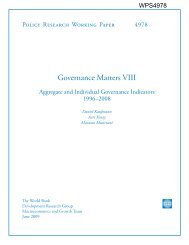Decentralized Local Governance In Fragile States ... - DeLoG
Decentralized Local Governance In Fragile States ... - DeLoG
Decentralized Local Governance In Fragile States ... - DeLoG
You also want an ePaper? Increase the reach of your titles
YUMPU automatically turns print PDFs into web optimized ePapers that Google loves.
The ability of local government to deliver these benefits depends upon a set of facilitating governanceconditions. Azfar et al. (2001) characterize these as ‘institutional disciplines’, which serve to shape theincentives for local officials. The study found that these disciplines mediated the actual outcomes thatdecentralized local government can achieve. They are: (a) civic disciplines, concerning the ability ofcitizens and civil society organizations to exercise voice and to choose alternate sources of services(exit); (b) intergovernmental disciplines, the extent to which higher levels of government imposeconstraints and exercise oversight vis-à-vis lower levels; and (c) public sector management disciplines,which involve the rules and procedures that govern the behavior of public employees and officials(e.g. anti-corruption provisions, civil service regulations).<strong>In</strong> numerous developing countries, these institutional disciplines are weak, and even more so in fragileand post-conflict states. Thus, in terms of contributing to the restoration of governance, a focus onlocal government needs to be complemented by attention to the facilitating conditions necessary fortheir effectiveness. Nonetheless, local governments, for the reasons recounted below, can contribute tomoving conflict-affected countries toward recovery and stability.8<strong>Local</strong> governments can increase speed of service delivery to citizensResearch shows that the timeframe for creating a sustainable governance system is much longer thanmost donors have anticipated (Chand and Coffman, 2008). <strong>In</strong> the short run, citizens want a state thatcan provide security and basic public goods. Building from the local can address citizens’ day-to-dayneeds and priorities, and help to promote stability. <strong>In</strong> countries with an existing if dilapidated orconflict-damaged infrastructure base, basic public service delivery improvements can be achievedquickly through rehabilitation and extension of services to unserved or underserved populations.Small-scale projects can be rapid and can be carried out with local labor, both enhancing legitimacy aswell.<strong>Local</strong> governments can address ethnic and/or regional inequitiesAlthough there is a danger that decentralization can exacerbate territorial or ethnic group inequitiesunless accompanied by equalization measures, a number of countries have sought to address pressuresfor local control and autonomy through increased devolution to local authorities or the creation of newsub-national entities (see, for example, Crook, 2003). Particularly in states that contain regional


